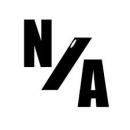Neal Ford
ÜberConf
Denver · July 16 - 19, 2013

Director / Software Architect / Meme Wrangler
Neal is Director, Software Architect, and Meme Wrangler at ThoughtWorks, a global IT consultancy with an exclusive focus on end-to-end software development and delivery.
Before joining ThoughtWorks, Neal was the Chief Technology Officer at The DSW Group, Ltd., a nationally recognized training and development firm. Neal has a degree in Computer Science from Georgia State University specializing in languages and compilers and a minor in mathematics specializing in statistical analysis.
He is also the designer and developer of applications, instructional materials, magazine articles, video presentations, and author of 6 books, including the most recent The Productive Programmer. His language proficiencies include Java, C#/.NET, Ruby, Groovy, functional languages, Scheme, Object Pascal, C++, and C. His primary consulting focus is the design and construction of large-scale enterprise applications. Neal has taught on-site classes nationally and internationally to all phases of the military and to many Fortune 500 companies. He is also an internationally acclaimed speaker, having spoken at over 100 developer conferences worldwide, delivering more than 600 talks. If you have an insatiable curiosity about Neal, visit his web site at http://www.nealford.com. He welcomes feedback and can be reached at nford@thoughtworks.com.
Presentations
Continuous Delivery All-day Workshop, Pt. 1: Deployment Pipelines
Getting software released to users is often a painful, risky, and time-consuming process. This workshop sets out the principles and technical practices that enable rapid, incremental delivery of high quality, valuable new functionality to users. Through automation of the build, deployment, and testing process, and improved collaboration between developers, testers and operations, delivery teams can get changes released in a matter of hours–sometimes even minutes–no matter what the size of a project or the complexity of its code base.
Continuous Delivery Pt 1: Deployment Pipelines
Getting software released to users is often a painful, risky, and time-consuming process. This workshop sets out the principles and technical practices that enable rapid, incremental delivery of high quality, valuable new functionality to users. This workshop focuses on the Deployment Pipeline concept from Continuous Delivery.
Continuous Delivery All-day Workshop Pt 2: Agile Infrastructure
Getting software released to users is often a painful, risky, and time-consuming process. This workshop sets out the principles and technical practices that enable rapid, incremental delivery of high quality, valuable new functionality to users. Through automation of the build, deployment, and testing process, and improved collaboration between developers, testers and operations, delivery teams can get changes released in a matter of hours–sometimes even minutes–no matter what the size of a project or the complexity of its code base.
Continuous Delivery All-day Workshop Pt 2: Agile Infrastructure
Getting software released to users is often a painful, risky, and time-consuming process. This workshop sets out the principles and technical practices that enable rapid, incremental delivery of high quality, valuable new functionality to users. Through automation of the build, deployment, and testing process, and improved collaboration between developers, testers and operations, delivery teams can get changes released in a matter of hours–sometimes even minutes–no matter what the size of a project or the complexity of its code base.
Introduction to Clojure
Clojure is a powerful dynamic language that compiles to many target environments, including the JVM, JavaScript, and the CLR. In this talk, you will learn how to think in Clojure, and why you should want to.
Introduction to Clojure
Clojure is a powerful dynamic language that compiles to many target environments, including the JVM, JavaScript, and the CLR. In this talk, you will learn how to think in Clojure, and why you should want to.
Build Your Own Technology Radar Workshop for Architects
A Technology Radar is a tool that forces you to organize and think about near term future technology decisions, both for you and your company. This talk discusses using the radar for personal breadth development, architectural guidance, and governance.
Emergent Design
Emergent design is a big topic in the agile architecture and design community. This session covers the theory behind emergent design and shows examples of how you can implement this important concept.
4 Practical Uses for Domain Specific Languages
Domain Specific Langauges seems like a cool idea, but where's the payoff? This talk provides an overview of how to build both internal and external DSLs (including the state of the art tools), stopping along the way to show how this is practical to your day job.
